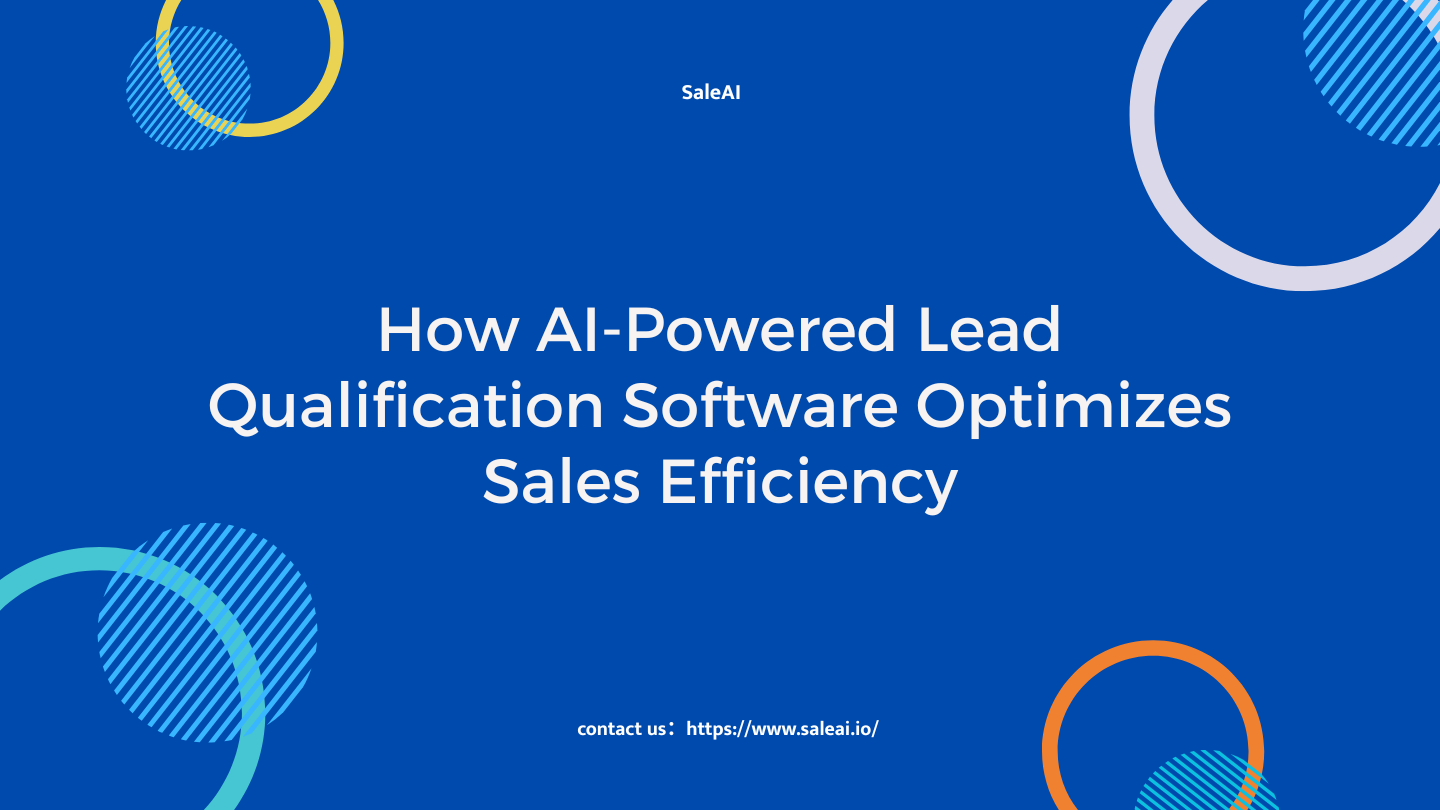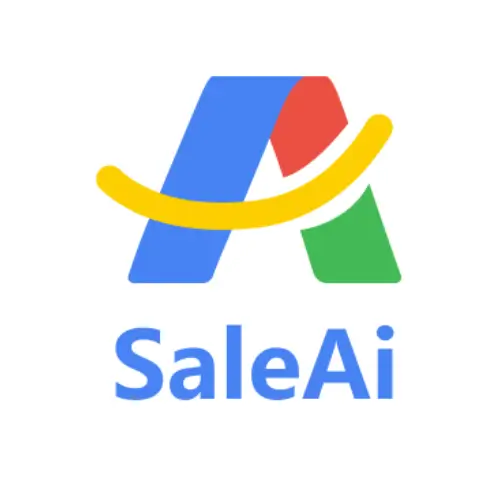
Introduction: The Hidden Cost of Poor Lead Qualification
In any sales process, time is money. Sales teams often waste valuable hours chasing unqualified leads, resulting in lower productivity, increased costs, and missed revenue opportunities. Traditional lead qualification methods—such as manual scoring or broad segmentation—fail to provide the precision needed to identify leads with the highest potential.
This is where AI-powered lead qualification software steps in. By automating the process of analyzing, scoring, and prioritizing leads, AI revolutionizes how businesses approach sales. This article examines how AI-powered lead qualification software works, its core benefits, and how it can transform the efficiency and success of your sales process.
What is AI-Powered Lead Qualification Software?
AI-powered lead qualification software uses machine learning algorithms and data analytics to evaluate and prioritize leads based on their potential to convert. Unlike traditional methods, which rely on subjective judgment and manual processes, AI tools:
- Analyze large datasets to identify buying signals.
- Assign scores to leads based on predefined criteria.
- Continuously improve their accuracy through machine learning.
This ensures that sales teams focus their efforts on leads most likely to convert, maximizing efficiency and revenue.
Key Features of AI-Powered Lead Qualification Software
a. Predictive Lead Scoring
AI evaluates a variety of data points—such as website activity, social media engagement, and email interactions—to predict the likelihood of conversion.
- Example Data Points:
- Number of visits to the pricing page.
- Responses to marketing emails.
- Engagement on LinkedIn (e.g., likes, shares, comments).
- Result: Leads with higher predictive scores are prioritized for follow-ups.
b. Real-Time Lead Tracking
AI monitors leads in real time, identifying key behaviors that indicate interest.
- Use Case: A lead downloads an eBook or spends significant time on a product page. The software flags this lead as “hot,” prompting immediate action by the sales team.
c. Dynamic Criteria Customization
AI tools allow businesses to customize qualification criteria based on their unique sales process. Common criteria include:
- Industry and company size.
- Budget and purchasing authority.
- Current stage in the buyer’s journey.
Pro Tip: Continuously refine your criteria based on feedback from sales teams to improve accuracy.
d. CRM Integration
The software integrates seamlessly with popular CRM platforms like Salesforce, HubSpot, and Zoho.
- Automatically sync lead scores and activity history.
- Provide sales reps with actionable insights directly in the CRM.
Benefits of AI-Powered Lead Qualification Software
a. Improved Sales Efficiency
Sales teams no longer waste time on low-quality leads. By focusing on high-priority prospects, they can allocate their time and resources more effectively.
b. Higher Conversion Rates
Leads identified by AI are more likely to convert, as they are filtered based on objective, data-driven criteria.
c. Faster Response Times
With real-time tracking and alerts, sales teams can engage leads at the right moment—when interest is at its peak.
d. Consistency Across Teams
AI eliminates the subjectivity of manual lead scoring, ensuring that all sales reps are working with the same quality standards.
e. Scalability for Growing Businesses
Whether you’re managing 100 leads or 100,000, AI-powered tools can scale effortlessly without compromising accuracy.
Practical Applications of AI-Powered Lead Qualification Software
Scenario 1: B2B SaaS Startups
A SaaS company targeting mid-sized enterprises uses AI to prioritize leads based on company size, website activity, and engagement with product demos. By focusing on leads with high engagement, the company reduces its sales cycle by 30%.
Scenario 2: Exporters Targeting International Buyers
An exporter uses AI to qualify buyers by analyzing customs data, trade volumes, and contact engagement. AI helps them identify high-potential buyers in Southeast Asia, enabling faster market penetration.
Scenario 3: E-Commerce Businesses
An online retailer uses AI to score leads based on browsing history, abandoned carts, and email interactions. This enables the marketing team to send personalized offers to leads most likely to make a purchase.
How to Get Started with AI-Powered Lead Qualification Software
Step 1: Define Your Qualification Criteria
- Collaborate with sales and marketing teams to identify key traits of high-quality leads.
- Use data from past successful deals to refine your ideal customer profile (ICP).
Step 2: Integrate with Your CRM
- Choose software that integrates seamlessly with your existing CRM or sales platform.
- Ensure that lead scores and insights are easily accessible to your sales team.
Step 3: Automate Lead Scoring
- Set up AI algorithms to analyze lead behavior, demographic data, and engagement metrics.
- Regularly review and adjust scoring criteria as market conditions evolve.
Step 4: Train Your Sales Team
- Educate your sales team on how to interpret lead scores and use AI-generated insights effectively.
- Encourage collaboration between sales and marketing to optimize the qualification process.
Step 5: Monitor and Optimize
- Use analytics dashboards to track the performance of your lead qualification process.
- Identify areas for improvement and refine your strategy over time.
Overcoming Challenges with AI in Lead Qualification
Challenge 1: Initial Setup Complexity
Some businesses struggle with setting up AI systems due to a lack of technical expertise.
- Solution: Choose a user-friendly platform with dedicated customer support and training resources.
Challenge 2: Data Quality Issues
AI is only as good as the data it analyzes. Inconsistent or incomplete data can lead to inaccurate results.
- Solution: Regularly clean and update your CRM to ensure data accuracy.
Challenge 3: Resistance to Change
Sales teams may be hesitant to adopt AI tools due to unfamiliarity or fear of automation.
- Solution: Highlight the benefits of AI, such as reduced workload and improved results, to encourage adoption.
Why Choose AI-Powered Lead Qualification Software?
a. Tailored Solutions for Your Business
AI tools adapt to your specific needs, providing customized scoring models and criteria.
b. Continuous Improvement
Machine learning ensures that the software becomes more accurate over time, delivering better results with each iteration.
c. Competitive Advantage
By adopting AI, businesses can stay ahead of competitors still relying on traditional lead qualification methods.
Conclusion: Take Your Sales Process to the Next Level
AI-powered lead qualification software is a game-changer for businesses looking to optimize their sales process. By automating lead scoring, prioritizing high-quality prospects, and delivering actionable insights, AI tools empower sales teams to work smarter, not harder.




